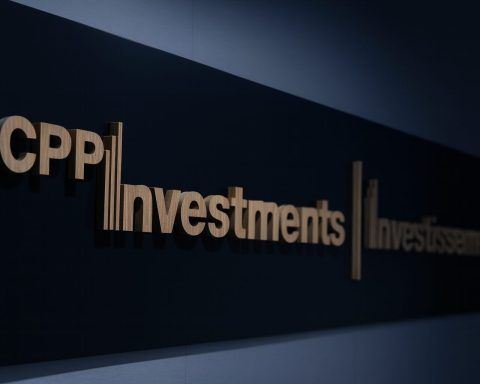Published: November 27, 2025
Rising living costs are pushing many baby boomers back into the workforce just as a new generation is quietly turning retirement planning into a core life goal. Fresh surveys released this week — plus recent comments from Robinhood CEO Vlad Tenev — reveal a sharp generational divide: older Americans are struggling to stay retired, while Gen Z is opening retirement accounts in their teens and twenties and dreaming of quitting work years earlier than their parents. [1]
At the same time, today’s research shows that governments and policymakers are moving the finish line: official retirement ages are creeping higher, and proposals in the U.S. could push full Social Security benefits toward age 69. [2]
Here’s what the latest data from November 27, 2025 and the past few days tell us about baby boomers, Gen Z, and the new reality of retirement.
Baby boomers: the “un‑retiring” generation
According to coverage of Robinhood CEO Vlad Tenev’s recent podcast appearance and subsequent reporting, many baby boomers are being dragged out of retirement by the basic math of everyday life. Soaring inflation, sluggish wage growth and high housing and medical costs are pushing older Americans back into paid work just to cover the bills. [3]
Several data points illustrate the squeeze:
- A Vanguard analysis cited in recent coverage found only about 40% of baby boomers are on track to maintain their lifestyle in retirement, compared with 47% of Gen Z workers aged 24–28. [4]
- A Standard Life survey of U.K. adults found about 14% of baby boomers and older Gen Xers have already “un‑retired,” with another 4% considering a return to work. [5]
- Since the 1980s, the share of Americans working past 65 has roughly quadrupled, with nearly one in five older Americans still employed. [6]
At the same time, average retirement balances mask huge gaps. NerdWallet’s breakdown of Federal Reserve data shows the average retirement savings for households aged 55–64 is about $537,560, but the median — the more realistic midpoint — is just $185,000. [7] For many boomers, that simply isn’t enough to fund 20–30 years of retirement in a high-cost world.
New analysis today from Investopedia estimates that for people in their 60s, retirement portfolios typically hold around $300,000 in stocks on average — but only a little over $100,000 at the median. [8] It’s a stark reminder that “average” investors often look much wealthier on paper than the typical retiree actually is.
Vlad Tenev: Gen Z is making retirement accounts cool
Against this backdrop, Robinhood cofounder and CEO Vlad Tenev has become an unlikely narrator of a generational shift.
In a widely covered appearance on the Uncapped podcast, Tenev said that when he graduated college in 2008, retirement felt distant and abstract. Today, he says, Gen Z customers are opening retirement accounts as young as 19, and treating long‑term investing as a priority rather than a boring afterthought. [9]
Newsweek’s write‑up of the interview notes that Tenev sees Gen Z as more conservative and forward‑thinking than many assume, pointing to their early interest in 401(k)s and IRAs. At the same time, surveys he cites show younger Americans are far from confident that a traditional retirement between 65 and 70 is still realistic, given student debt, precarious work and rising living costs. [10]
Other outlets have described a “generational inversion” on Robinhood’s own platform:
- Gen Z is increasingly drawn to old‑school products like retirement accounts and diversified funds.
- Older investors, including some boomers, are more likely to chase speculative trades and “the cool new thing.” [11]
In other words, the same generation that made vinyl records cool again may be doing the same for long‑term, boring investing.
New surveys: Gen Z’s ideal vs. expected retirement age
Fresh data published this week puts hard numbers on Gen Z’s retirement dreams.
A new Manulife John Hancock Retirement survey, reported yesterday by Investopedia and Yahoo Finance, finds that: [12]
- Gen Z’s ideal retirement age is 59.
- But they expect to retire at 67, an eight‑year gap between dream and reality.
- Millennials want to retire at 61, but expect to work until 69.
- Across generations, expected retirement ages cluster in the late 60s.
A separate industry survey highlighted by the National Association of Plan Advisors (NAPA) reaches a similar conclusion: Gen Z expects to retire at 67, while Millennials, Gen X and baby boomers all peg their expected retirement age at 69. [13]
At the same time, a major Transamerica Institute report from mid‑2025 shows that more than a third of workers now imagine working until 70 or not retiring at all, with financial insecurity a key concern across all age groups. [14]
In that context, Gen Z’s relatively early dreams (retiring at 59) look less like fantasy and more like an attempt to get ahead of a system they no longer trust.
Today’s headline: Americans say the “perfect” retirement age is 58
New research released by Empower and highlighted in coverage today adds another twist: Americans, on average, say the “right” age to retire is 58 — even though many expect to work much longer. [15]
Empower’s “Big Life Changes” study finds that:
- Americans think you should start saving for retirement at 27 and ideally retire at 58, about six years before the national average retirement age of 64. [16]
- 45% wish they had started saving earlier.
- 42% see retirement planning as the single biggest wealth‑building opportunity in their lives.
The gap between these “perfect world” targets and real‑world behavior is huge. Another Investopedia analysis published today notes that only about 1% of Americans in their early 40s and 6% in their early 50s are actually retired, and just 2.5% of Americans have $1 million or more in retirement savings. [17]
Put bluntly: most people dream of an early exit, but very few have the money to pull it off.
The goalposts are moving: higher official retirement ages
While workers adjust their expectations, governments are shifting the rules.
- Portugal confirmed today that its legal retirement age will rise to 66 years and 11 months in 2027, two months higher than in 2026, based on updated life expectancy data. [18]
- In the U.S., a new budget proposal from the Republican Study Committee would gradually raise the full Social Security retirement age from 67 to 69 over several years, though it has not yet become law. [19]
Analysts warn that such changes effectively shift more risk onto individuals. If full benefits are only available closer to 70, workers who want — or need — to stop earlier will have to rely more heavily on personal savings, employer plans and part‑time work.
Is Gen Z really better prepared — or just more worried?
The latest data suggest Gen Z may be more structurally prepared for retirement than older cohorts were at the same age, even if they feel less optimistic.
From the Manulife/Investopedia analysis and recent Vanguard research: [20]
- Gen Z is more likely to have access to defined‑contribution plans like 401(k)s than baby boomers did when they were starting out.
- Modern 401(k)s increasingly use auto‑enrollment and “default” investments such as target‑date funds (QDIAs), which invest contributions professionally even if the worker never makes an active choice.
- Because they’re starting earlier, Gen Z savers have decades for compound interest to work, potentially leaving them better off than some older cohorts who began saving later.
That said, behavior still matters — and today’s news shows a more complicated picture:
- An Investopedia report released this morning finds Gen Z is cutting back on holiday spending, planning to reduce their holiday budgets by about 23% and focusing on essentials and secondhand goods as inflation and tariffs squeeze their wallets. [21]
- Another Investopedia story today reveals that over half of Gen Z respondents admit to overspending to appear successful, and more than a third say they regularly exaggerate their finances to impress others — with about 37% willing to go into debt to impress a date or partner. [22]
- A fresh survey from Vanquis, covered by Credit Connect, shows Gen Z makes an average of 74 impulse purchases a year, nearly double the overall average of 42, with social media acting as a powerful driver of “buy now” behavior. [23]
Taken together, the picture is nuanced: Gen Z is simultaneously more systemically prepared — thanks to better plan design and earlier access to investing — and more vulnerable to social‑media‑driven overspending and debt.
What this means for baby boomers, Gen Z, and everyone in between
The flurry of research and CEO commentary around retirement this week points to a few clear themes:
- Retirement is less of a cliff, more of a sliding scale.
Surveys from Transamerica, Goldman Sachs and others show growing numbers of people in every generation expect to work part‑time in retirement or delay full retirement well into their late 60s or beyond. [24] - Time is Gen Z’s biggest advantage — if they use it.
Starting contributions in your early 20s, even at modest levels, can build a far larger nest egg than starting in your 40s, because compound growth does most of the heavy lifting. The Manulife example quoted by Investopedia shows a 25‑year‑old investing $500 per month at 8% could end up with more than $1.6 million by 65; someone starting at 45 might end up with less than $300,000 under the same assumptions. [25] - Boomers’ struggles are a warning, not just a tragedy.
The growing number of older adults “un‑retiring” because their savings can’t keep up with inflation is exactly what many Gen Z savers are trying to avoid — and why they’re opening retirement accounts at 19 after watching their parents and grandparents go back to work. [26] - Policy changes matter as much as personal discipline.
Raising the official retirement age, tightening Social Security or linking benefits more tightly to lifetime earnings can dramatically change what “retirement ready” looks like. Today’s moves in Portugal and the U.S. debates over raising full retirement age to 69 underscore that no generation can assume the current rules will stay in place. [27] - Financial literacy and transparency are now core relationship skills.
The fact that many Gen Zers are both saving early and faking their finances to impress others shows that money is as much an emotional and social issue as a mathematical one. [28]
Bottom line: The retirement story of 2025 is generational — and deeply unequal
The news cycle around retirement this week has been unusually dense: a billionaire fintech CEO praising 19‑year‑old retirement savers, new surveys exposing gaps between ideal and expected retirement ages, and governments quietly nudging official retirement ages upward. [29]
If there’s a single takeaway for November 27, 2025, it’s this:
- Baby boomers are living the consequences of under‑saving and rising costs in real time.
- Gen Z is trying to learn from that pain — opening retirement accounts early, cutting some spending, but still facing powerful social and economic pressures.
- And the “perfect retirement age” of 58 is more a wish than a plan unless policy, workplace benefits and personal behavior all line up.
This article is for general information only and is not financial advice. Anyone worried about their own retirement readiness should consider speaking with a qualified financial planner or adviser.
References
1. fortune.com, 2. www.theportugalnews.com, 3. fortune.com, 4. m.economictimes.com, 5. m.economictimes.com, 6. m.economictimes.com, 7. www.nerdwallet.com, 8. www.investopedia.com, 9. www.newsweek.com, 10. www.newsweek.com, 11. www.businessinsider.com, 12. www.investopedia.com, 13. www.napa-net.org, 14. www.transamericainstitute.org, 15. www.empower.com, 16. www.empower.com, 17. www.investopedia.com, 18. www.theportugalnews.com, 19. englishproject.org, 20. www.investopedia.com, 21. www.investopedia.com, 22. www.investopedia.com, 23. www.credit-connect.co.uk, 24. www.transamericainstitute.org, 25. www.investopedia.com, 26. m.economictimes.com, 27. www.theportugalnews.com, 28. www.investopedia.com, 29. www.newsweek.com










